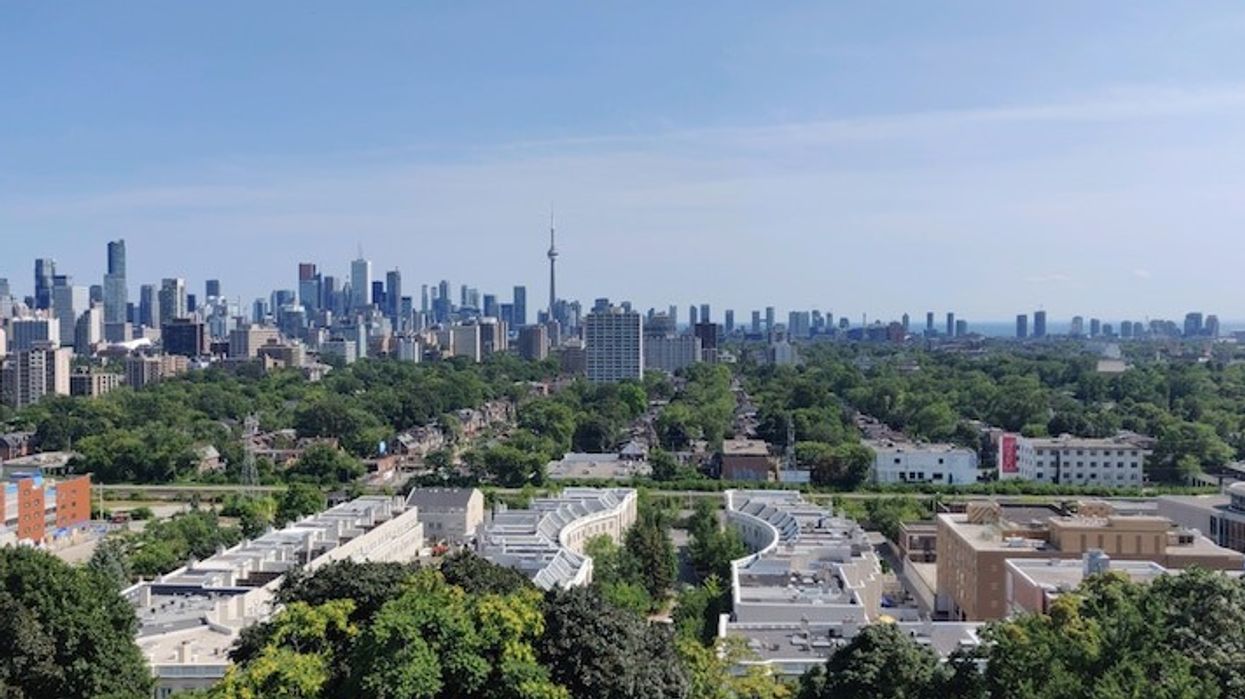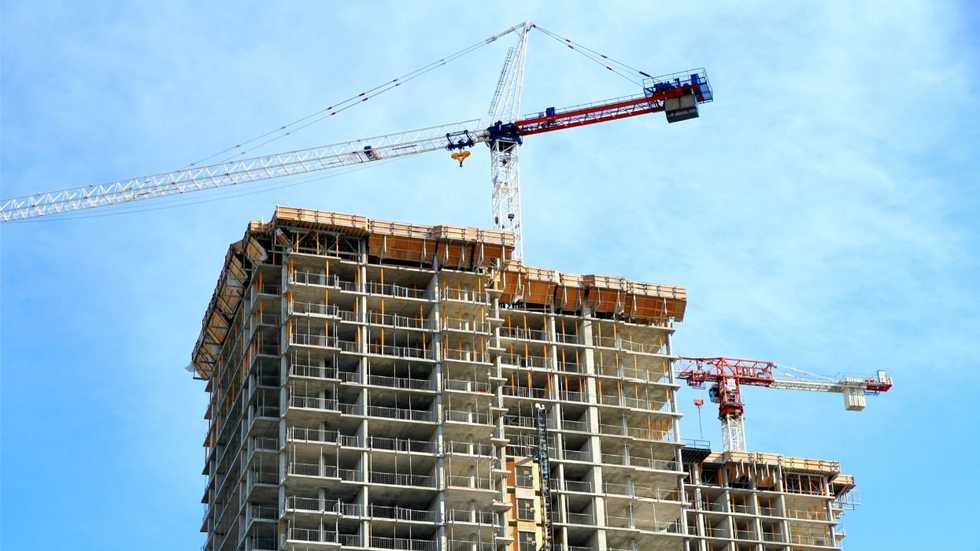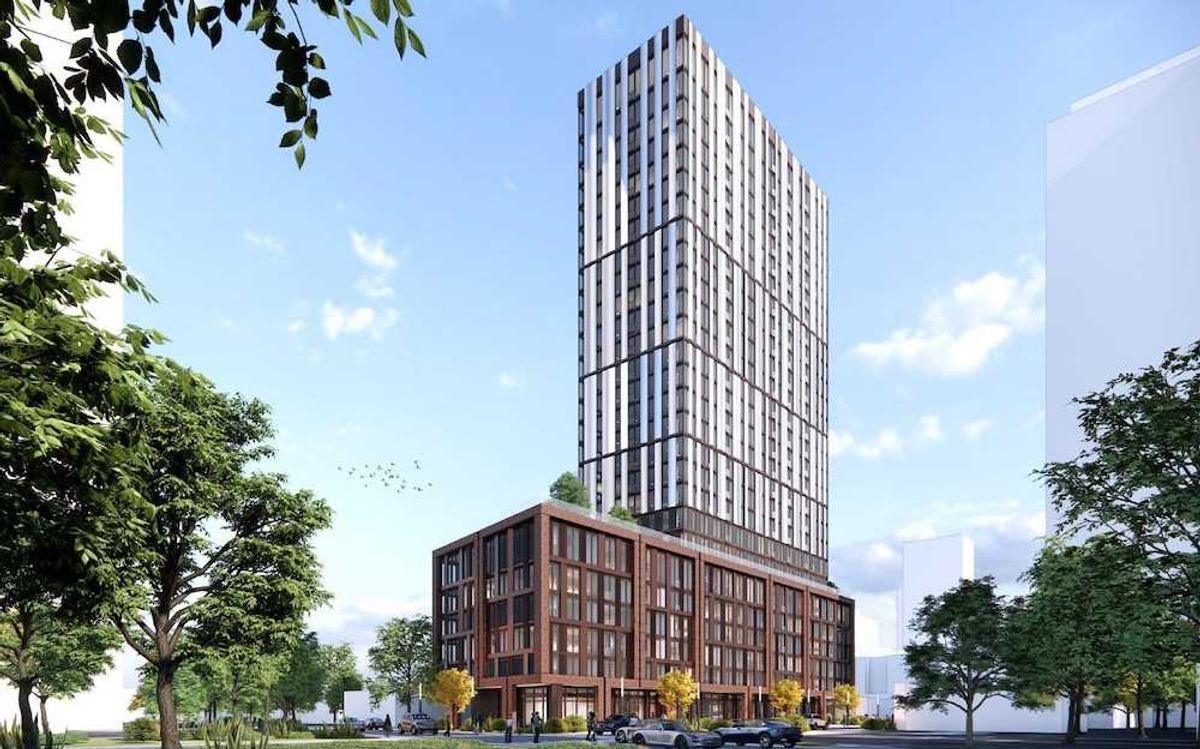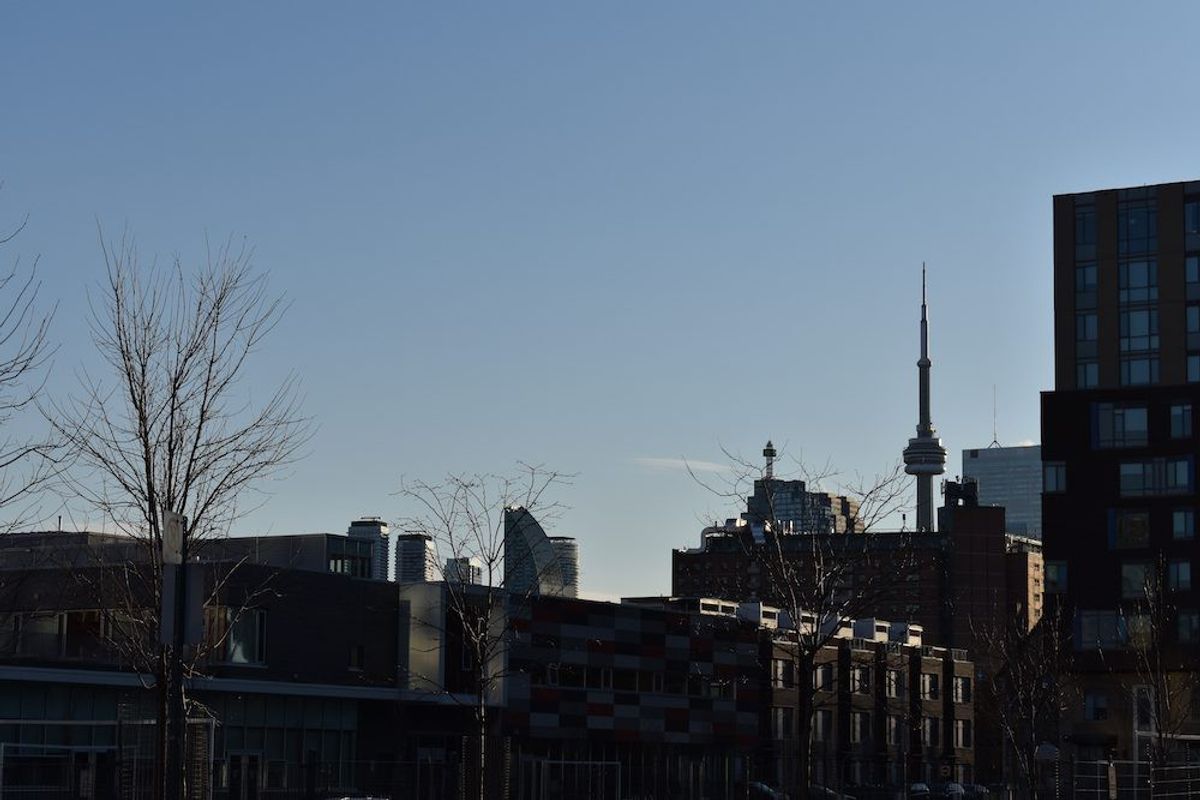It's an ever-present, increasingly-difficult question on the minds of all those privileged enough to ask it: in Toronto, is it better to buy a condo, or to rent one?
A new report from Zoocasa investigates this query and finds, as with many things in life, the answer hovers somewhere in the "it depends" department.
But, using quarterly data from the Toronto Regional Real Estate Board (TRREB) to compare the price-to-rent ratio (PTRR) for 35 neighbourhoods across the city, the report shines a light on exactly where it may be the best choice to rent, and which areas it should pay off to buy in.
One of the report's most notable findings is that on average, in Toronto, the cost of a condo from Q2 of this year is equal to more than two decades of rent payments -- 22 years, to be exact. Of the neighbourhoods analyzed, 22 had a PTRR of at least 21 years, while only two had a like ratio of 15 years or under.
Zoocasa's Jannine Rane describes the PTRR as "a useful measure for renters and prospective buyers to compare the economics of buying versus renting." This ratio doesn't account for other affordability factors including the carrying costs of home ownership (mortgage payments, property taxes, condo maintenance fees, etc.), or the income required to qualify for a mortgage, but the metric is helpful in directly comparing home prices to rental rates across specific neighbourhoods.
A ratio of 21 or more suggests it's better to rent than buy, while a ratio that falls between one and 15 indicates purchasing offers a better value, Rane says. By this standard, Zoocasa's report shows those aforementioned two neighbourhoods -- E03 (East York, Danforth Village) and E10 (West Hill, Centennial Scarborough) -- are the only two areas of the city where condo-buying is worth its cost right now.
READ: Average Rent Prices in Toronto Down for Eighth Straight Month
Creeping up behind those two is E11 (Malvern, Rouge), another east end area, with a PTRR of 17. On the west side of town, W05 (Black Creek, York University Heights) and W10 (Rexdale-Kipling, West Humber-Claireville) both offer PTRRs of 17 as well; two not-terribly-priced options for those looking to buy in the west end. These neighbourhoods show average prices of $434,340 and $438,047 alongside average lease rates of $2,140 and $2,124, respectively.
It's important to keep in mind, however, that the PTRR doesn't capture the whole picture for those weighing their next move, and Zoocasa's report emphasizes this. Personal finance objectives and lifestyle goals impact the decisions of potential home-buyers and renters, as do the advantages and disadvantages of purchasing vs. leasing. Those who buy a condo get to relish in the pride of home ownership, and may gain deeper appreciation for property value, Rane points out. Meanwhile, another industry insider stands strong on the benefits of buying.
"I have always been pro-ownership," Ben Myers, President of Bullpen Research & Consulting Inc. tells Toronto Storeys. "I think of homeownership as forced savings."
Myers commends the fact that those who own have more control over their property, as dealing with landlords can be difficult at times -- he recalls one instance, for example, when a landlord of his did nothing when his rental basement flooded.
"Owners can renovate and update their homes and reap the financial benefit of that investment," Myers says. "In the case of single-family homes, the house can often grow with you, as certain areas allow the owner to build a second or third storey, or a laneway house/basement suite for a relative or to rent out to offset the mortgage costs."
But for those who are still inclined to rent, the PTRR is useful in highlighting which neighbourhoods will offer the best value for a buck (...or a few thousand bucks, realistically). Zoocasa's analysis shows that in central Toronto -- neighbourhoods including C08 (Regent Park, St. James Town, Corktown), C02 (Yorkville, Annex, Summerhill) and C12 (York Mills, Bridle Path, and Hoggs Hollow) -- price-to-rent ratios were the steepest.
C09 (Rosedale, Moore Park) boasted a PTRR of 35, snagging the top (or bottom, depending on your perspective) spot in this department. The ratio was based on an average price of $1,307,658 and lease rate of $3,143, indicating the ability to rent for almost four decades before the spend is equivalent to a buy.
But again, the price tag on a buy doesn't necessarily capture the return purchasers get on their investment, nor does it show what renters are missing out on by living in a space they can't truly call their own.
For example, Myers touts the benefits of tax-free capital gains, and the ease of tapping into a home equity line of credit in the case of an emergency, at a low interest rate.
"If someone can afford it, can see themselves living in the property for five or more years, and feels comfortable in their current job, I would recommend looking at buying," he tells Storeys.
Renters, on the flip side, can move house more easily, have less responsibility for home maintenance or repairs, and don't have the same amount of equity tied to one asset; all benefits mentioned by Zoocasa. What's more, those who opt to rent can enjoy the local market's softening for the first time in ages, which comes with upsides like a wider range of choices and rental incentives on offer from owners and landlords. There's no denying that in a lot of ways, it seems renters have an upper hand right now.
And sitting pretty on the table as a middle-ground for those who want to buy, but aren't pleased with the two most viable options Toronto's currently offering? There's always Hamilton.





















